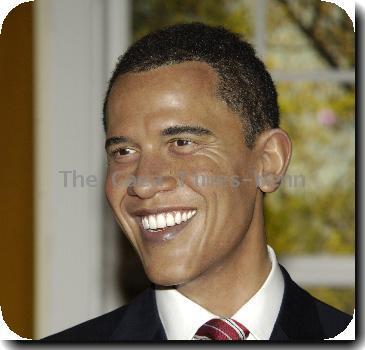At UN treaty session, Germany, others target US ‘leftover’ nukes in Europe for elimination
By Charles J. Hanley, APThursday, May 6, 2010
West Europeans target US nukes at treaty session
UNITED NATIONS — Germany and other West European nations at the U.N. nonproliferation conference are calling for elimination of U.S. tactical nuclear weapons in Europe — “leftovers from the Cold War” — as a way to advance global arms control.
“They no longer serve a military purpose and do not create security,” German state minister Werner Hoyer told fellow delegates to the 189-nation session to review the Nuclear Nonproliferation Treaty.
Belgian disarmament official Werner Bauwens, speaking Thursday, the fourth day of the monthlong conference, urged the U.S. and Russia to launch negotiations “as soon as possible” to reduce their shorter-range nuclear weapons.
The United States still has an estimated 200 nuclear bombs at six NATO bases — in Belgium, the Netherlands, Germany, Italy and Turkey. They were stationed in Europe during the Cold War, potentially to be delivered at short range by those nations’ warplanes or the U.S. Air Force in the event of an all-out war in Europe between NATO and the old Warsaw Pact.
The U.S. also has an estimated 900 tactical nuclear weapons stored on U.S. soil. The Russians have at least 2,000 such weapons, possibly many more, and since the disintegration of the Soviet Union and collapse of the Warsaw Pact have brought them all back to Russian soil from Eastern Europe and western former Soviet republics.
U.S. President Barack Obama and Russian President Dmitry Medvedev signed a new treaty April 8 reducing the two countries’ strategic nuclear weapons — those on intercontinental missiles and in long-range bombers and missile submarines. But the two nuclear powers have never negotiated reductions in the tactical arms.
This February, the foreign ministers of Germany, Belgium, the Netherlands, Luxembourg and Norway called for high-level discussions in NATO on the future of “nuclear sharing,” the term used for these old binational nuclear missions.
At a NATO foreign ministers’ meeting last month, U.S. Secretary of State Hillary Rodham Clinton said reductions in U.S. tactical nuclear arms must be linked to reciprocal cuts by the Russians.
Some European politicians say, however, they favor a unilateral withdrawal of the U.S. bombs if joint U.S.-Russian cuts aren’t negotiated.
Germany’s Hoyer, speaking Tuesday, referred to the bombs as “leftovers from the Cold War.”
“The German government’s intention to bring about, in agreement with our allies, the withdrawal of the tactical nuclear weapons still stationed in Germany can be seen in this light,” he said.
Addressing the conference this week, Dutch Foreign Minister Maxime Verhagen and Norwegian delegate Gry Larsen also reiterated support for eliminating the Europe-based U.S. weapons as an example of their countries’ efforts at arms control.
Tags: Barack Obama, Belgium, Eastern Europe, Europe, Germany, International Agreements, North America, Nuclear Weapons, Political Issues, Russia, United Nations, United States, Weapons Administration, Weapons Of Mass Destruction, Western Europe

